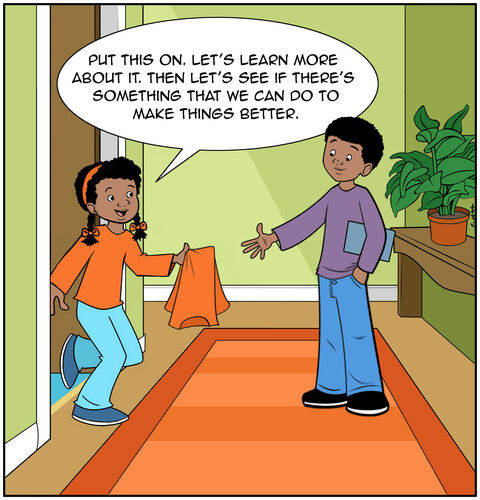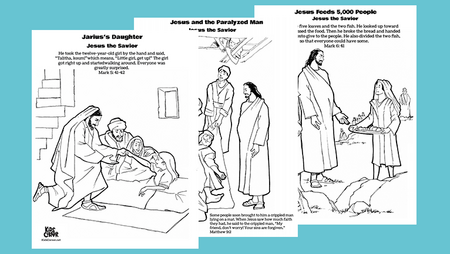
Orange Shirt Day and Micah 6:8
Bible Readings
Take a few minutes to read the Bible verses listed and ask the Holy Spirit to lead you in how this verse applies to you this week.
Micah 6:8, Psalm 133, Luke 10:25-37
8 The God has told us what is right and what he demands: “See that justice is done, let mercy be your first concern, and humbly obey your God.”
Micah 6:8
1 It is truly wonderful when the people of God live together in peace. 2 It is as beautiful as olive oil poured on Aaron's head and running down his beard and the collar of his robe. 3 It is like the dew from Mount Hermon, falling on Zion's mountains, where the has promised to bless his people with life forevermore.
Psalm 133
25 An expert in the Law of Moses stood up and asked Jesus a question to see what he would say. “Teacher,” he asked, “what must I do to have eternal life?” 26 Jesus answered, “What is written in the Scriptures? How do you understand them?” 27 The man replied, “The Scriptures say, ‘Love the Lord your God with all your heart, soul, strength, and mind.’ They also say, ‘Love your neighbors as much as you love yourself.’ ” 28 Jesus said, “You have given the right answer. If you do this, you will have eternal life.” 29 But the man wanted to show that he knew what he was talking about. So he asked Jesus, “Who are my neighbors?” 30 Jesus replied: As a man was going down from Jerusalem to Jericho, robbers attacked him and grabbed everything he had. They beat him up and ran off, leaving him half dead. 31 A priest happened to be going down the same road. But when he saw the man, he walked by on the other side. 32 Later a temple helper came to the same place. But when he saw the man who had been beaten up, he also went by on the other side. 33 A man from Samaria then came traveling along that road. When he saw the man, he felt sorry for him 34 and went over to him. He treated his wounds with olive oil and wine and bandaged them. Then he put him on his own donkey and took him to an inn, where he took care of him. 35 The next morning he gave the innkeeper two silver coins and said, “Please take care of the man. If you spend more than this on him, I will pay you when I return.” 36 Then Jesus asked, “Which one of these three people was a real neighbor to the man who was beaten up by robbers?” 37 The expert in the Law of Moses answered, “The one who showed pity.” Jesus said, “Go and do the same!”
Luke 10:25-37
Memory Verse
Micah 6:8
8 The God has told us what is right and what he demands: “See that justice is done, let mercy be your first concern, and humbly obey your God.”
Can you imagine having your favorite outfit taken away from you and being told you weren’t allowed to wear it anymore? How would you feel? Angry? Sad? That wouldn’t be fair, would it?
Throughout the Bible, God is clear that justice—or making things right again—is very important to him. In our world, many things are difficult and broken by sin. But God tells us that he is at work restoring justice, and he invites each of us to help him make things right wherever and whenever we can. One way we can make things right is by knowing the sad stories of the past and by doing better today.
About fifty years ago, a little girl named Phyllis had to leave her home on the Dog Creek Indian Reserve in British Columbia, Canada, and go to school far away. Her Grannie bought her a special orange shirt to wear because orange was Phyllis’s favorite color. However, at the school, the people in charge would not let Phyllis wear her special orange shirt. Phyllis cried and asked to have it back, but no one listened.
Beginning in the 1870s, the Canadian government forced thousands of Indigenous children like Phyllis to attend religious residential schools, where they lived away from their communities. This same thing happened to Native Americans in the United States. The students at these schools experienced many injustices. They were not allowed to wear their special clothes from home. They were not allowed to speak the language they grew up knowing. They were forced to cut their hair short. Even worse, children were not allowed to leave during the school year, and parents were not allowed to visit. There are now rules in place so these things never happen again to children in school.
What happened to Phyllis and so many other Indigenous/Native American children was very wrong. So, how can we “see that justice is done” today for what happened in the past? Part of doing justice today begins with remembering past injustices—to make sure these kinds of things don't happen again. In September, people in Canada recognize Orange Shirt Day—a day to remember the injustices of residential schools. In honor of Phyllis and so many other Indigenous children, people wear orange shirts on September 30th and together, they lament. A lament is a prayer that remembers the past and expresses sorrow and pain.
God calls us to look for opportunities each day to “see that justice is done, let mercy be [our] first concern, and humbly obey [our] God." This might mean speaking up when you see someone being put down, bullied, or teased. It could look like comforting someone who is hurt or listening to someone’s sad story and lamenting with them. And there are bound to be times when we ourselves act unjustly too and hurt others. But we can always ask others and Jesus for forgiveness and pray for God’s help to love better and walk humbly with him each day.







